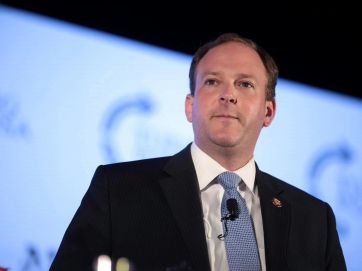This month Tim Nicholson, a sustainability officer for Grainger, the
The decision poses a problem in several directions. For one, climate change scientists are dismayed that this will undermine their research by equating it with spiritual, unscientific belief. They quake with fear that the ruling might shake people’s faith in global warming rather than reinforce it. “As a scientist who works on climate change, I find it deeply alarming,” fretted Myles Allen (writing for the Guardian), who directs the Climate Dynamics group at the
And there is a general feeling that this ruling has done something serious and ridiculous by adding a new ism to the already long list in anti-discrimination clauses. As Nathalie Rothschild wrote in a Spiked article, “This signals that discrimination on the basis of green views is as unacceptable as sexism, racism or religious prejudice. How long before we see the term ‘envirophobia’ to describe people who dislike greens?” She is right. Like its predecessor the diversity movement, the sustainability movement gives diplomatic immunity to certain people who belong to certain identity groups. I will not be surprised to see condemnations of “carbon-normative” (like hetero-normative) people not too far in the future. All the while, the real bullies are the sustainabullies.
Sustainability is indeed a pseudo-religion with its own code of morality that misappropriates the ideas of “ethics,” “justice,” and “social mandate,” to shame people into compliance. Global warming advocates call skeptics “deniers,” a term that sounds disturbingly similar to “heretics.” And sustainability even has its own eschatology: if we don’t change our ways, we’ll end up boiling along with the planet. But if we are good—very, very good—we’ll have sustainatopia on earth.
Apparently Tim Nicholson was upset with his employer when his boss flew a staff member from
Nicholson now works for 10:10, a campaign to get individuals businesses, schools and universities, and organizations in the
Despite the concern expressed by some commentators about the judgment – that it could be used by climate sceptics to brand climate change as a pseudo-religious, irrational belief system - I hope that in practice it will encourage people who share my beliefs to speak up about climate change in their workplace and seek practical measures to cut emissions.
We’ll stay tuned to find out whether Nicholson wins his case. If he does, he can call it a victory in Jesus – er – Gaia.













